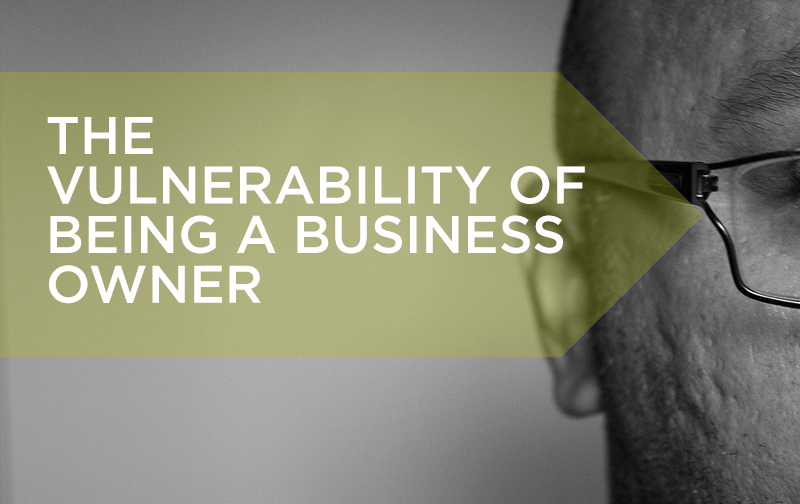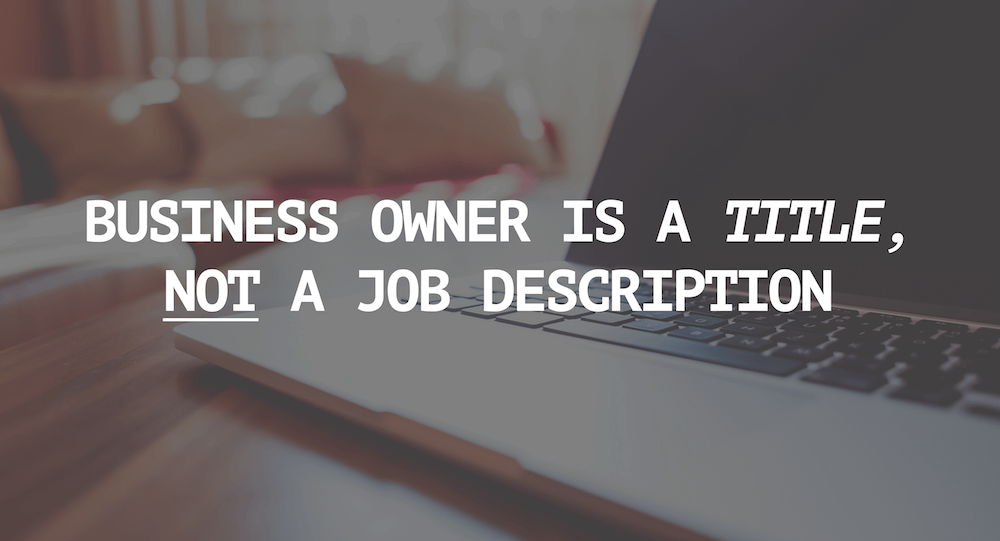The vulnerability of being a business owner
In her wildly popular TED talk Brene Brown tells us that one of our deepest fears is vulnerability. We are afraid of the act of letting ourselves be seen. Yet, in order to start a company, we have to do just that. Not only do we have to let ourselves be seen, but, once we get into it, we find out that we are actually putting ourselves on display! What “sells” best (especially in professional services) is when you “sell” you. That’s what people are buying.
How anxious is that making you feel right now?

I’ve been doing this for 15 years and I cringe just thinking about it. People are buying me? Don’t they know that I’m not really that smart? I don’t know everything I need to know. Sometimes I’m really uncertain about what the right answer is. I can’t be sure.
Brown calls these “I’m not ______ enough,” thoughts shame.
What drives shame is fear of disconnection. If people found out these things about me they wouldn’t like me, they wouldn’t trust me, they wouldn’t hire me. So instead of saying, “I don’t know,” or “I’m not sure,” I start talking about what I do know. I try to create certainty (where there is none) and pretend that this is all straightforward. It’s so much more comfortable to be in that black and white world than in the real world where there’s a broad spectrum of light and shadow–maybes and uncertainties.
Unfortunately, when we “fake it ’til we make it” what we lose is authenticity. If what we know is that there’s lots of uncertainty, but instead we present “certainty”, then we are disconnected from reality– the reality that others in the room are feeling, and that we know to be true. When we create certainty where there is none, we add to the pile of things that we can’t let people see. And our feelings of shame get bigger.
Humans are actually drawn to authenticity. We want to know that those around us have flaws and that they can admit them. When someone has the courage to open up and show us they’re “not enough” most people don’t read that as weakness, they respond to it as bravery. And it promotes connection.
“Vulnerability sounds like truth and feels like courage. Truth and courage aren’t always comfortable, but they’re never weakness.” ~Brené Brown, Daring Greatly: How the Courage to Be Vulnerable Transforms the Way We Live, Love, Parent, and Lead
You all can see the problem bringing this stuff to a business context. It’s that business loves certainties, and flees from ambiguity. For instance, in the business world, if you want someone to make a certain decision you present it as a “no brainer”. No reflection, no consideration, no thought required. Remove any source of doubt; that’s what makes it easier for people to move forward. But authenticity means admitting uncertainty, which makes the path forward more cloudy. So we broadcast confidence and certainty when inside we feel scared and uncertain. We start out our business relationships disconnected from one another and from reality.
Sometimes the customer colludes with us in this fantasy. They want to buy certainty, we want to sell certainty; let’s make a deal! So we go to work with that client based on this idea that we “have it all handled”. This is great; until we don’t “have it all handled”. Then the client flips out! The jig is UP. Not only is the fantasy of certainty shaken, but now all the uncertainty they unloaded onto our “certain” solution comes pouring out. They feel tricked, and trust is blown.
Of course there are times when I’m talking to my ideal client, and the project is something I’ve done many times before, that I can offer (near) certainty. Where I have genuine confidence and can offer that to my prospect with authenticity. That’s one of the best reasons I have for staying in my niche; because I know my clients and their problems so well, I can really be authentic in my work and relationships with them.
So what do we do when we can’t really bring certainty to our clients and prospects?
- Instead of offering certainty, be with them in their uncertainty.
When clients are feeling uncertain about their situation, we need to find a way to be with them in their uncertainty. If we’ve worked with clients like this before, we can talk about how it feels to be in their shoes. What is it like to face that situation? How does it feel for the organization? How does it feel for them personally? Is there a time when you have felt that way? If we can make it OK that they have those feelings, and let them know that others in the same situation have those feelings, their anxiety level drops. Really, it does. And you build trust. - Shift thinking from fear to thankfulness.
Instead of letting the discussion be about all the problems they have, the ways they are failing and not good enough, shift the discussion to the assets they have and the problems they’ve already solved. Fear makes us stupid. When we are afraid our brain shuts off blood flow to the prefrontal cortex, the part of the brain that does logical thinking. You don’t need to think when your options are to fight or run. But this is not life or death–we need to short circuit that fear response and get that thinking part of the brain working–this is good for us as well as our clients! - Elevate their worth and value.
Shame tells us we are not enough. Worthiness says we deserve care, attention, help, positive regard (despite our circumstances or whatever mistakes we’ve made). Worthiness says, “I am worth it.” Clients who believe they are worth it have a lot fewer hangups about hiring you; and they are less likely to blame you for any mistake or dropped ball. They are just going to feel better all on their own, and they will be easier to work with.
This dynamic–the battle between being vulnerable and authentic and offering unauthentic certainty–isn’t just present in our business development conversations, it’s there with our team as well. They too, want certainty from us; but they will also be most compelled our courage and vulnerability. But that’s the subject of a different article…
If you can tell when you are being authentic and when you are not, take a risk today, and be authentic in just one conversation, one relationship. Or just try to pay attention. How often do you feel vulnerable? And how often do you show that vulnerability to someone else?

Photo credit: AndYaDontStop

Could your leadership range restrain
the growth of your business?
Take our self-leadership assessment to identify opportunities
to grow your leadership (which could grow your business).
Get your results instantly without entering your email address.